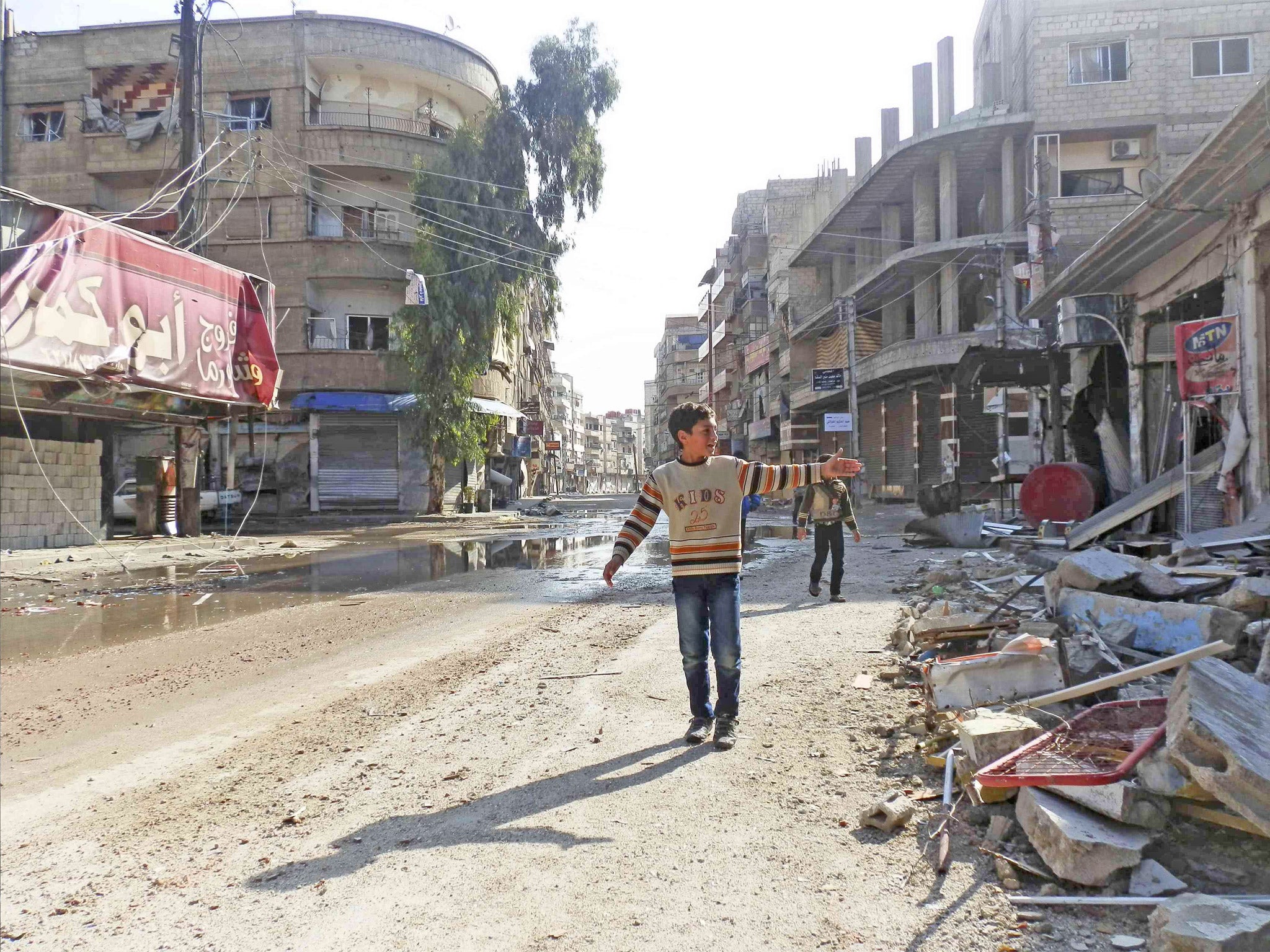With blood on the streets of Damascus, even Assad's friends in Syria know his end is inevitable
It would be a disaster for the West to intervene in, and even worse to arm the 'moderate' elements of the opposition. But the threat of a no-fly zone is powerful

Military analysts seem all agreed that the Syrian civil war isn’t about to end with a rebel seizure of the capital. More likely is what we have seen in Aleppo – a bloody stalemate in which government forces hold on to the centre but cannot push back the rebels from the surrounding suburbs. It has lasted nearly four months in Syria’s second city and could do so again in Damascus.
But something is changing, not just on the ground but in the international context. President Obama’s warnings of intervention should Damascus resort to chemical weapons, and the decision this week by Nato foreign ministers to deploy Patriot missiles in Turkey, bring active Western involvement that much closer.
Of course, it has all been wrapped in the usual declarations of intent, or rather non-intent. The Patriot missiles are to be used for defensive purposes only and may take a month or more to deploy. The dark hints of action should President Assad resort to WMDs – which he clearly has, and reportedly in some quantity – is meant as a deterrent not a promise.
There is, however, a real sense now that the West, appalled at the refugee problem caused by the civil war and worried at the growing strength of Muslim fundamentalists in the opposition, is putting in place the means to impose at least a no-fly zone, if not more active engagement.
It’s a threat that would certainly act as a game-changer in a conflict which otherwise seems destined to last months if not longer. Assad still has the superior weaponry and the loyalty of the Alawite clan that makes up the inner core of his forces. The rebels, still divided despite the efforts to bring them together, can take ground but they can’t hold it in a pitched battle.
They are, however, learning to retreat when faced with overwhelming force, and they seem to be capturing military bases to refresh their arms supply. And they, or rather Islamist elements, are beginning to receive better weapons from the Qataris and Saudis.
President Assad can hold on but he cannot defeat the uprising, which means he must lose in the end. The tipping point will come when the inevitability of defeat induces those on the sidelines to commit themselves and those within the regime to switch sides. The glue that holds a regime together is the fear among its supporters of what will happen if the other side wins.
It’s a fear which the West has only increased by demanding total regime change from the outset and which the opposition has done too little to assuage by failing to promise protection to the minorities when it happens.
As each week passes without Assad defeating the rebels, so the feeling grows that he is doomed. Even Russia is sensing that he has run out of options, while Iranian support is neither as great nor as absolute as believed.
For the West to get directly involved in the fighting would still be a terrible mistake, despite the temptations to try and equalise the balance of power in the field by providing the rebels with more sophisticated weaponry. Even worse would be, as some in Washington urge, arming the “moderate” elements in the opposition to counteract the more extreme ones.
But the threat of imposing a no-fly zone is a powerful one, if only to help the refugees. So would be the guarantee of international protection of minorities in the aftermath of the war. The various interested countries involved are meeting in Morocco next week. It would be a good time to start talking of what we would do to help Syria in a different future.
Can Japan resist the allure of nationalism?
The world is not exactly awaiting the result of the Japanese election on 16 December with bated breath. But then neither are the Japanese. After more than a decade of confidence-sapping lack of growth, rocketing public debt, and a series of man-made as well as natural disasters, including the recent tunnel collapse, the country is faced with an election in which the same old parties mouth the same old policies with precious little difference between them.
Just the recipe you might think for a lurch into populist nationalism. And the main contender for power, Shinzo Abe, of the Liberal Democrat Party, which ruled the country for the whole post-war period before it was replaced in 2007, has indeed stirred those waters with openly anti-Chinese rhetoric and calls to force the Central Bank to print money.
Fortunately, that is not the tone of the debate as a whole. But it is a weakness of democracies that they seem to find it so difficult to meet the challenges of economic and social stagnation. Japan is not the only country experiencing a political as well as financial deficit. It deserves a better future than more of the same.

Join our commenting forum
Join thought-provoking conversations, follow other Independent readers and see their replies